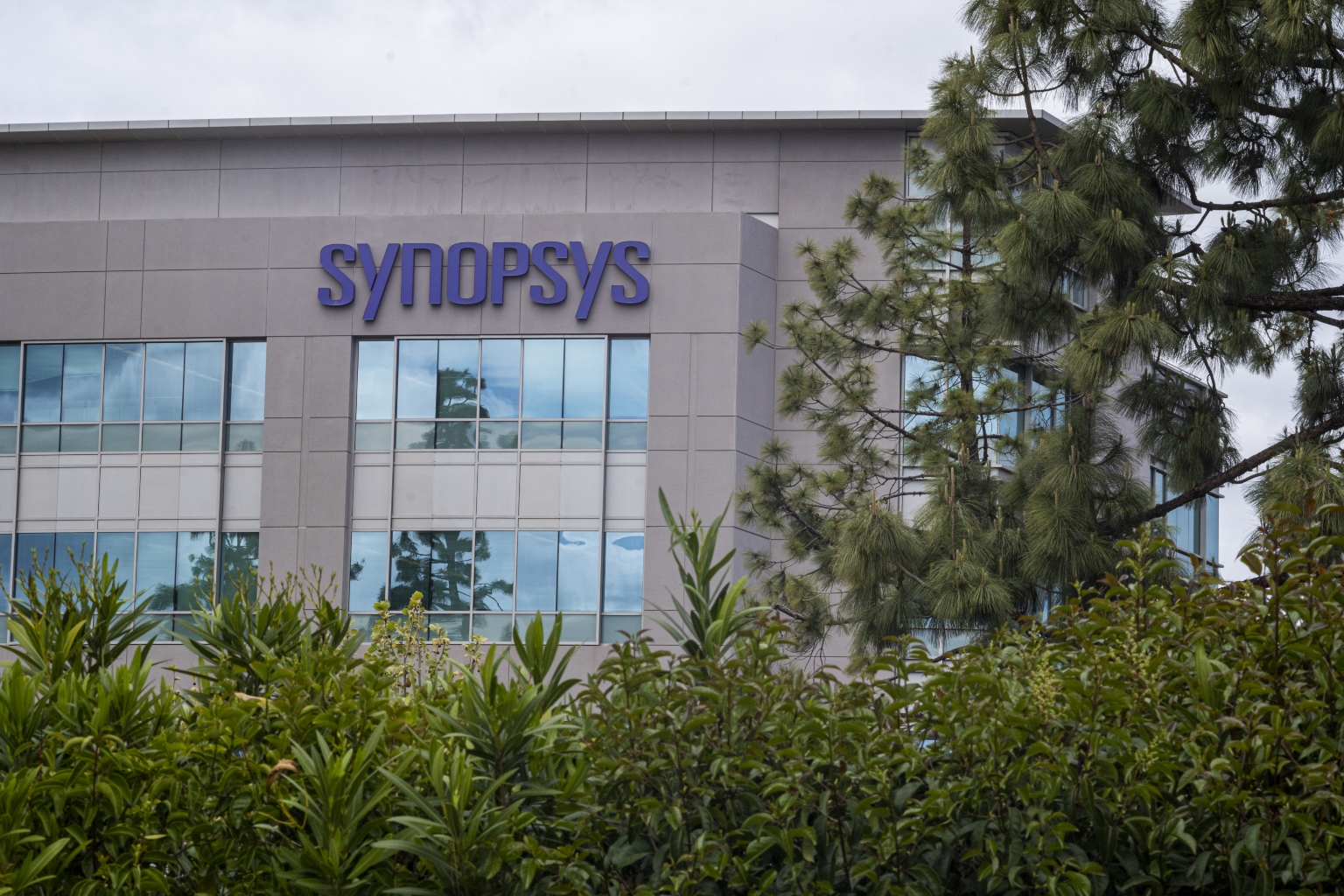Synopsys probed on allegations it gave tech to Huawei, SMIC
Sign up now: Get ST's newsletters delivered to your inbox

Synopsys allegedly provided chip designs and software to Huawei Technologies's HiSilicon unit for manufacture at SMIC.
PHOTO: BLOOMBERG
SAN FRANCISCO/WASHINGTON (BLOOMBERG) - Synopsys, the biggest supplier of software used to design semiconductors, is under investigation by the US Department of Commerce for possibly passing key technology to banned Chinese companies, according to people familiar with the matter.
Investigators are looking into allegations that Synopsys, working with affiliates in China, provided chip designs and software to Huawei Technologies's HiSilicon unit for manufacture at Semiconductor Manufacturing International Corp (SMIC), said the people, who asked not to be identified because details of the process haven't been made public.
US companies are barred from selling some types of technology to Huawei and SMIC because they've been designated as threats to national security by the Commerce Department's Bureau of Industry and Security (BIS).
Synopsys in December disclosed it had received a subpoena from BIS relating to "transactions with certain Chinese entities", without specifying when it received the request or providing further details. At the time, the company said it was in compliance with all regulations and was working to respond to the inquiry. Synopsys declined to comment beyond that initial disclosure.
The situation highlights the difficulties US companies are facing amid the escalating rivalry between their home country and China, which is the largest and fastest-growing market for their technology. To keep investors happy, businesses need to tap that opportunity without running afoul of increasing restrictions from regulators.
In Washington, there's a vocal lobby calling for more measures, like the US Entity list, to block Beijing's attempts to build up its domestic chip industry, and to thwart what some see as attempts by China to use illicit means and billions in government money to achieve that independence.
For its part, China has threatened to impose its own measures on overseas companies that get in the way of its efforts, even when they're doing so to comply with new rules in the US.
Synopsys stock declined as much as 4.6 per cent in New York trading on Wednesday (April 13), wiping out earlier gains of as much as 3.6 per cent. The shares closed down 1.3 per cent at US$306.72 (S$418), contributing to a 17 per cent slide for 2022 so far.
Mountain View, California-based Synopsys and its rival Cadence Design Systems dominate the market for software used to design semiconductors. Their products are essential for Chinese chipmakers trying to lead Beijing's push to make the country more self-reliant in electronic components.
Like many other US companies, Synopsys has done business with Chinese customers through joint ventures in China, the world's largest market for chips.
That type of arrangement has been thrown into the spotlight by another owner of foundational technology in semiconductors, Arm. The SoftBank Group-owned company, whose designs are at the heart of most smartphone processors, is still trying to remove the head of Arm China, more than a year after the board fired him. That's added to concern that overseas companies risk losing control of their technology in China when working through joint ventures there.
"While the Department does not comment on the potential existence of investigations, BIS vigorously investigates allegations of violations of the Export Administration Regulations, including attempts to transfer controlled items or technologies to or among parties on the Entity List," BIS said in a statement. "Any enforcement action resulting from an investigation is made public after that investigation has concluded."
Huawei, a maker of networking gear and once one of the world's largest smartphone producers, was placed on the US Entity list in May 2019. SMIC, China's largest chip manufacturer, was placed under restrictions in December 2020. Both Chinese companies have denied any wrongdoing.


